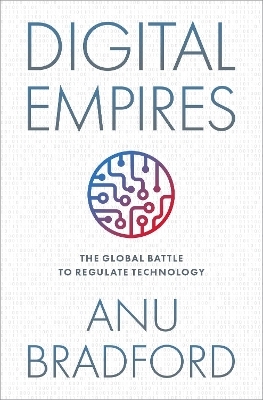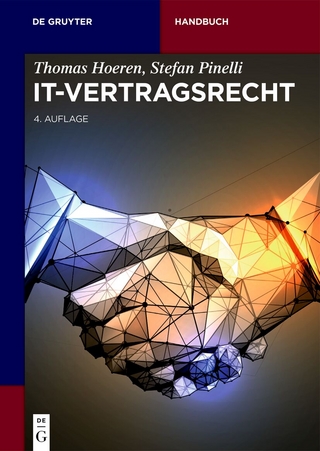
Digital Empires
The Global Battle to Regulate Technology
Seiten
2025
Oxford University Press Inc (Verlag)
978-0-19-780273-1 (ISBN)
Oxford University Press Inc (Verlag)
978-0-19-780273-1 (ISBN)
- Noch nicht erschienen (ca. Juni 2025)
- Versandkostenfrei innerhalb Deutschlands
- Auch auf Rechnung
- Verfügbarkeit in der Filiale vor Ort prüfen
- Artikel merken
Financial Times Best Books of 2023 in Economics
The global battle among the three dominant digital powers—the United States, China, and the European Union—is intensifying. All three regimes are racing to regulate tech companies, with each advancing a competing vision for the digital economy while attempting to expand its sphere of influence in the digital world. In Digital Empires, her provocative follow-up to The Brussels Effect, Anu Bradford explores a rivalry that will shape the world in the decades to come.
Across the globe, people dependent on digital technologies have become increasingly alarmed that their rapid adoption and transformation have ushered in an exceedingly concentrated economy where a few powerful companies control vast economic wealth and political power, undermine data privacy, and widen the gap between economic winners and losers. In response, world leaders are variously embracing the idea of reining in the most dominant tech companies. Bradford examines three competing regulatory approaches—the American market-driven model, the Chinese state-driven model, and the European rights-driven regulatory model—and discusses how governments and tech companies navigate the inevitable conflicts that arise when these regulatory approaches collide in the international domain. Which digital empire will prevail in the contest for global influence remains an open question, yet their contrasting strategies are increasingly clear.
Digital societies are at an inflection point. In the midst of these unfolding regulatory battles, governments, tech companies, and digital citizens are making important choices that will shape the future ethos of the digital society. Digital Empires lays bare the choices we face as societies and individuals, explains the forces that shape those choices, and illuminates the immense stakes involved for everyone who uses digital technologies.
The global battle among the three dominant digital powers—the United States, China, and the European Union—is intensifying. All three regimes are racing to regulate tech companies, with each advancing a competing vision for the digital economy while attempting to expand its sphere of influence in the digital world. In Digital Empires, her provocative follow-up to The Brussels Effect, Anu Bradford explores a rivalry that will shape the world in the decades to come.
Across the globe, people dependent on digital technologies have become increasingly alarmed that their rapid adoption and transformation have ushered in an exceedingly concentrated economy where a few powerful companies control vast economic wealth and political power, undermine data privacy, and widen the gap between economic winners and losers. In response, world leaders are variously embracing the idea of reining in the most dominant tech companies. Bradford examines three competing regulatory approaches—the American market-driven model, the Chinese state-driven model, and the European rights-driven regulatory model—and discusses how governments and tech companies navigate the inevitable conflicts that arise when these regulatory approaches collide in the international domain. Which digital empire will prevail in the contest for global influence remains an open question, yet their contrasting strategies are increasingly clear.
Digital societies are at an inflection point. In the midst of these unfolding regulatory battles, governments, tech companies, and digital citizens are making important choices that will shape the future ethos of the digital society. Digital Empires lays bare the choices we face as societies and individuals, explains the forces that shape those choices, and illuminates the immense stakes involved for everyone who uses digital technologies.
Anu Bradford is Henry L. Moses Professor of Law and International Organizations at Columbia Law School. She is also a director for Columbia's European Legal Studies Center and a Senior Scholar at Jerome A. Chazen Institute for Global Business at Columbia Business School. Bradford is the author of The Brussels Effect: How the European Union Rules the World (Oxford, 2020), which was named one of the Best Books of 2020 by Foreign Affairs.
| Erscheint lt. Verlag | 3.6.2025 |
|---|---|
| Verlagsort | New York |
| Sprache | englisch |
| Maße | 164 x 236 mm |
| Gewicht | 1012 g |
| Themenwelt | Recht / Steuern ► Allgemeines / Lexika |
| Recht / Steuern ► EU / Internationales Recht | |
| Recht / Steuern ► Privatrecht / Bürgerliches Recht ► IT-Recht | |
| ISBN-10 | 0-19-780273-7 / 0197802737 |
| ISBN-13 | 978-0-19-780273-1 / 9780197802731 |
| Zustand | Neuware |
| Informationen gemäß Produktsicherheitsverordnung (GPSR) | |
| Haben Sie eine Frage zum Produkt? |
Mehr entdecken
aus dem Bereich
aus dem Bereich
Telekommunikations- und Multimediarecht
Buch | Softcover (2024)
dtv Verlagsgesellschaft
27,90 €
Datenschutz-Grundverordnung Bundesdatenschutzgesetz
Buch | Hardcover (2024)
C.F. Müller (Verlag)
200,00 €


